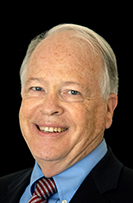
Meredith (Med) Colket
Med Colket retired, as a Senior Fellow, from United Technologies Research Center (now RTRC, ‘R’ for Raytheon) after 37 years. Since then, Med has been providing consulting services to a variety of groups undergoing research in combustion. For example, Dr. Colket provided technical guidance and coordination for the National Jet Fuels Combustion Program (2014-2020). Presently, he is supporting research projects at NASA GRC in microgravity, at DoE (Argonne) and RTRC. At UTRC, Dr. Colket had played key leadership roles in several combustion-related areas, including endothermic fuels for scramjet combustion systems (resulting in a successful flight for the X-51) and developing scientific tools for modeling chemical kinetics and thermodynamics to support combustor simulations and characterizing kinetically-limited problems of interest to UTC, including flame stability, NOx formation, ignition phenomena, static stability, soot formation, catalytic combustion, and CVD processing.
Dr. Med Colket is an internationally recognized expert in the field of chemical kinetics and combustion of hydrocarbon-based fuels, with specialties in pollutant formation and fuels. He received his Bachelor’s Degree in Engineering Physics from Cornell University, and his M.A. and Ph.D., in Mechanical Engineering from Princeton University. He is recognized as a Fellow of the American Institute of Aeronautics and Astronautics and of the Combustion Institute. He received the 2020 AIAA Propellants & Combustion Award, was a member of the Board of Directors for both the Combustion Institute and the American Society for Gravitational and Space Research, and has participated in a variety of scientific advisory/review committees for NASA, DoE, California Energy Commission, British Petroleum, and the US. Army.
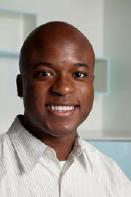
John Dabiri '01
John Dabiri is the Centennial Chair Professor at Caltech, with appointments in the Graduate Aerospace Laboratories (GALCIT) and Mechanical Engineering. His research focuses on unsteady fluid mechanics and flow physics, with particular emphasis on topics relevant to biology, energy, and the environment. Current interests include biological fluid dynamics in the ocean, next-generation wind energy, and development of new experimental methods. Dabiri is a MacArthur Fellow and Fellow of the American Physical Society. Other honors include the Alan T. Waterman Award from the National Science Foundation, the Presidential Early Career Award for Scientists and Engineers (PECASE), the Office of Naval Research Young Investigator Program Award, and being named one of MIT Technology Review's "35 Innovators Under 35" as well as one of Popular Science's "Brilliant 10."
Dabiri received his B.S.E. summa cum laude in Mechanical and Aerospace Engineering from Princeton University (2001); his M.S. in Aeronautics from Caltech (2003); and his Ph.D. in Bioengineering with a minor in Aeronautics from Caltech (2005). He was a Professor of Aeronautics and Bioengineering at Caltech from 2005 to 2015, during which time he also served as Director of the Center for Bioinspired Wind Energy, Chair of the Faculty, and Dean of Students. From 2015 to 2019 he served as a Professor of Civil and Environmental Engineering and of Mechanical Engineering at Stanford University, where he was recognized with the Eugene L. Grant Award for Excellence in Teaching. Dabiri serves on the Board of Directors of NVIDIA Corporation and the Board of Trustees of the Gordon and Betty Moore Foundation. He serves on President Biden's Council of Advisors on Science and Technology (PCAST) and the Secretary of Energy Advisory Board (SEAB). He has previously served on the editorial board of the Journal of Fluid Mechanics, the U.S. National Committee for Theoretical and Applied Mechanics (USNCTAM), the Defense Science Study Group, and as an Advisor to X at Alphabet (formerly GoogleX).
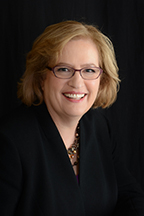
Patricia Falcone '74 (Committee Chair)
Patricia Falcone is the Deputy Director for Science and Technology at the Lawrence Livermore National Laboratory (LLNL). She is the principal advocate for the Lab’s science and technology base and oversees the strategic development of the Lab's capabilities. She is responsible for LLNL’s collaborative research with academia and the private sector, as well as its internal investment portfolio.
Falcone joined LLNL in 2015 after six years at the White House Office of Science and Technology Policy (OSTP), where she served as the Senate-confirmed Associate Director of OSTP for National Security and International Affairs. In that capacity, she led a team that advised on the science and technology dimensions of national security policy deliberations and on federal support of national security research and development.
Earlier, Falcone held technical and management positions at Sandia National Laboratories in Livermore, California, including Distinguished Member of the Technical Staff, and senior manager for Systems Analysis and Engineering. Her work at Sandia focused on the assessment of new technologies for mission applications and on advanced energy conversion technologies.
Falcone is a member of the State Department’s International Security Advisory Board and the Board of Directors of the Research Corporation for Science Advancement. She is a member of the Leadership Council of the Government-University-Industry-Philanthropy Research Roundtable (GUIPRR) of the National Academies of Science, Engineering and Medicine and a commissioner on the National Commission on Innovation and Competitiveness Frontiers led by the Council on Competitiveness.
Falcone earned a BSE in aerospace and mechanical sciences at Princeton University, and M.S. and Ph.D. degrees in mechanical engineering from Stanford University.
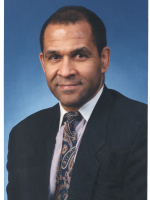
Christopher A. Hart
Christopher A. Hart is the founder of Hart Solutions LLP, which specializes in improving safety in a variety of contexts, including the safety of automation in motor vehicles, workplace safety, and process safety in potentially hazardous industries.
Mr. Hart is also Chairman of the Washington Metrorail Safety Commission, a three jurisdictional agency (MD, VA, DC) that was created in 2019 to oversee the safety of the Washington area subway system. In addition, in 2019 he was asked by the Federal Aviation Administration to lead the Joint Authorities Technical Review that was created bring together the certification authorities of 10 countries, as well as NASA, to review the robustness of the FAA certification of the flight control systems of the Boeing 737 MAX and make recommendations as needed to improve the certification process. Also, in 2021 he was asked to join the Board of the Joint Commission on Accreditation of Healthcare Organizations, the non-government organization that accredits hospitals, to help improve healthcare safety. He was also invited in 2021 to be on the FAA Management Advisory Council. After an Uber test vehicle struck and killed a pedestrian in Tempe, AZ, in 2018, and Uber terminated such tests on public streets, Mr. Hart was included in the team of experts that Uber engaged to recommend how to safely resume street testing, which it has done. In 2022 he was selected to be on the Patient Safety Working Group of the PCAST, the President’s Council of Advisors on Safety and Technology.
From 2009 until 2018 Mr. Hart was Chairman, Vice Chairman, and a Member of the National Transportation Safety Board (NTSB), having been nominated by President Obama and confirmed by the Senate. The NTSB investigates major transportation accidents in all modes of transportation, determines the probable causes of the accidents, and makes recommendations to prevent recurrences. He was previously a Member of the NTSB in 1990, having been nominated by (the first) President Bush.
Mr. Hart’s previous positions have included:
Deputy Director, Air Traffic Safety Oversight Service, Federal Aviation Administration,
Assistant Administrator for System Safety, FAA,
Deputy Administrator for the National Highway Traffic Safety Administration (NHTSA),
Deputy Assistant General Counsel to the Department of Transportation,
Managing partner of Hart & Chavers, a Washington, D.C., law firm, and
Attorney with the Air Transport Association.
Mr. Hart has a law degree from Harvard Law School and a Master’s Degree and a Bachelor’s Degree (magna cum laude) in Aerospace Engineering from Princeton University. He is a member of the District of Columbia Bar and the Lawyer-Pilots Bar Association, and he is a pilot with commercial, multi-engine, and instrument ratings as well as a Cessna Citation SIC Type Rating.
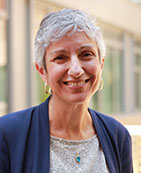
Ann Karagozian
Ann Karagozian is a Distinguished Professor in the Department of Mechanical and Aerospace Engineering at UCLA. Her research interests lie in fluid mechanics and combustion as applied to improved energy efficiency, reduced emissions, and advanced air breathing and rocket propulsion systems. Professor Karagozian is a Past Chair of the American Physical Society (APS) Division of Fluid Dynamics. She is a member of the U.S. Defense Science Board and was a member of the Department of the Air Force Scientific Advisory Board for over 15 years, serving as SAB Vice Chair (2005-2009) and twice receiving the Air Force Decoration for Exceptional Civilian Service. Prof. Karagozian is a Member of the National Academy of Engineering and is a Fellow of the APS, the American Institute of Aeronautics and Astronautics, and the American Society of Mechanical Engineers. She received her B.S. in Engineering from UCLA and her M.S. and Ph.D. in Mechanical Engineering from the California Institute of Technology. She is currently a member of the Board of Trustees of the Institute for Defense Analyses and is an alumna of and mentor for the IDA Defense Science Study Group. Prof. Karagozian is also the Inaugural Director of UCLA’s Promise Armenian Institute.
Dr. Derek A. Paley
Derek A. Paley is Director of the Maryland Robotics Center and Willis H. Young Jr. Professor of Aerospace Engineering Education in the Department of Aerospace Engineering and the Institute for Systems Research at the University of Maryland. He is the founding director of the UMD Collective Dynamics and Control Laboratory and the UMD Autonomous Micro Air Vehicle Team. Paley is an Affiliate Professor in the Department of Electrical and Computer Engineering, and a member of the Alfred Gessow Rotorcraft Center, the Maryland Robotics Center, the Burgers Program for Fluid Dynamics, the Applied Mathematics & Statistics, and Scientific Computation Program, the Brain and Behavior Initiative, the Maryland Transportation Institute, and the MATRIX Lab. Paley received the B.S. degree in Applied Physics from Yale University in 1997 and the Ph.D. degree in Mechanical and Aerospace Engineering from Princeton University in 2007 (dissertation).
He is the recipient of the Yale University Henry Prentiss Becton Prize for Excellence in Engineering and Applied Science in 1997, the Princeton University Harold W. Dodds Honorific Fellowship in 2006, the National Science Foundation CAREER award in 2010, the Presidential Early Career Award for Scientists and Engineers in 2012, the University of Maryland E. Robert Kent Teaching Award for Junior Faculty in 2014, and the AIAA National Capital Section Engineer of the Year in 2015. Paley was a Fellow in the 2013–2014 Office of Naval Research Sabbatical Fellowship Program, a Fellow in the 2019–2020 UMD ADVANCE Leadership Fellows Program, a 2020-2021 UMD Distinguished Scholar-Teacher, and a 2023 UMD Exemplary Researcher. He has been selected as a UMD University Honors Faculty Fellow for 2023-2025. Paley has authored more than 145 peer-reviewed publications including the textbook Engineering Dynamics: A Comprehensive Introduction (Princeton University Press, 2011); he edited the volume Bioinspired Sensing, Actuation, and Control in Underwater Soft Robotic Systems (Springer, 2020). He teaches introductory dynamics, advanced dynamics, aircraft flight dynamics and control, collective behavior, and nonlinear control. Paley’s research interests are in the area of dynamics and control, including cooperative control of autonomous vehicles, adaptive sampling with mobile networks, spatial modeling of biological groups, and bioinspired robotics. His research is based on support by the Air Force Office of Scientific Research, the Army Research Office, the Army Research Laboratory, the National Science Foundation, and the Office of Naval Research. Paley is Associate Fellow of the American Institute of Aeronautics and Astronautics and Senior Member of the Institute of Electrical and Electronics Engineers. He serves as Associate Editor of AIAA Journal of Guidance, Control, and Dynamics and IEEE Control Systems Magazine. Curriculum vitae; Google scholar profile; ResearcherID ORCID Scopus LinkedIn

Jay Polk
Dr. Polk is a Principal Engineer in the Propulsion, Materials, and Thermal Engineering Section at the Jet Propulsion Laboratory, where he has worked for the last 32 years. He is also a Lecturer in the Aerospace Engineering Department at Caltech, where he has taught the graduate space propulsion class for the last 22 years. He received a B.S. in Aerospace Engineering from the Georgia Institute of Technology and a Ph.D. in Mechanical and Aerospace Engineering from Princeton University. Dr. Polk is a Fellow of the American Institute of Aeronautics and Astronautics.
Dr. Polk is an expert in the area of high-current cathode physics, electric thruster wear processes, high power plasma thrusters, and the application of probabilistic methods to analysis of engine service life, and has considerable experience in the development of arcjet thrusters and Hall thrusters. He was the task manager for a successful 8200 hour wear test of a 2.3 kW ion engine of the type used on the New Millennium Deep Space 1 (DS1) flight project and supported the ion propulsion technology validation activities on DS1. He was a co-investigator in NASA’s Next Generation Ion Propulsion Program and in the Advanced Lithium-fed Applied-field Lorentz Force Accelerator (ALFA2) program, and principal investigator of the Nuclear Electric Xenon Ion System (NEXIS) program, which was focused on the development of a high power, high specific impulse ion thruster. He managed the Venus Extreme Environments Strategic Initiative, which developed technologies for Venus lander missions. From 1997 to 2001 he served as supervisor of the Advanced Propulsion Group at JPL.
He is currently managing JPL’s high power electric propulsion tasks as part of the Solar Electric Propulsion Technology Demonstration Mission under NASA’s Space Technology Mission Directorate and is the Life Qualification Lead for the Advanced Electric Propulsion System, a 12 kW Hall thruster system which is being developed by JPL and the NASA Glenn Research Center for use on the Lunar Gateway. He has authored over 100 papers in the field of electric propulsion and has received eight awards for best paper at the International Electric Propulsion Conference and the Joint Propulsion Conference.

Sarah Tang
Sarah is passionate about deploying research techniques on robots that interact with humans on a daily basis. Her work focuses on decision-making, motion planning, and trajectory optimization.
Sarah is currently a Senior Staff Software Engineering at Waymo, where she is a Technical Lead on the Planner ML team and working to improve driving quality with generative models. Previously, she was the Technical Lead and Manager of the Motion Planning team at Nuro, where she led development of the planning stack for major product milestones, including autonomous operation of their last-mile delivery robot without a driver nor chase-car in Arizona, California, and Texas for the first time. She was recognized in Business Insider’s 2021 list of “Rising stars in autonomous vehicles” for this work. Her academic research included multi-robot coordination of aerial and underwater robots.
Sarah got her start in robotics as a member of Princeton’s Great Class of 2013.